The Catalyst Killing - [28]
Miriam Filtvedt now looked at me with open curiosity and admiration. But her voice was just as calm, and her reply just as measured: she had turned out the light around midnight, but had not been able to sleep, and had thus lain awake. To avoid disturbing her roommate, she had been as still as she could. And given an academic proviso that she might have dropped off or confused people’s footsteps, she could therefore confirm Kristine Larsen’s claim that Falko Reinhardt’s footsteps had not been heard out in the hallway in the hours before he disappeared.
She could not help asking how I, two years later, could know that she had been awake. But then she answered this herself in the same breath, saying that I presumably could not say in light of the ongoing investigation.
I nodded meaningfully, noted down her answers, and reserved the right to contact her again should any more questions arise. She nodded, said that I now knew where to find her if that was the case, and then disappeared back into the library as if to illustrate the point.
Miriam Filtvedt Bentsen left half a cup of coffee and some cake on the table in her wake. They reinforced the feeling that she had now been given something to think about, even though I could not for the life of me see her as guilty of murder – or any other crime, for that matter.
IV
After Miriam Filtvedt Bentsen had gone back to the library, I treated myself to another cup of coffee and a couple of rolls for lunch. In the time it took me to eat this, I decided that I would follow up the old Nazi lead before going to the police security service. I was mentally putting it off, and used the excuse that it might be handy to have a clear overview of all the possible threats first.
I therefore went straight from the refectory to the history department. Professor Johannes Heftye was, as luck would have it, alone in his office and said straight away he would be happy to talk to me. He was a grey-haired, grey-bearded and well-dressed man in his sixties, with the Second World War as his speciality. He had also once been a Communist Party politician.
The professor’s memory was impressive, as far as I could tell. He immediately remembered not only Falko Reinhardt, but details about his unfinished thesis and the last supervision he had had with him. The thesis was about an NS network from the Second World War, a subject that both the student and supervisor thought was fascinating and important. Falko had called the professor out of the blue one evening during the holidays and asked if he could get guidance as soon as possible about some sensational new findings.
Professor Heftye’s curiosity was immediately piqued and they had met here at the university on 2 August – three days before Falko Reinhardt’s disappearance. Falko had been unusually excited and said that he had discovered things that might indicate that parts of the network were still active. He had then added in a hushed voice that it looked as though some of them were discussing options for a major offensive of some sort.
His supervisor got the impression that this might be an assassination or sabotage of some kind, but the usually so self-assured Falko Reinhardt was uncharacteristically vague about what kind of plans they might have and when it might happen. When, in addition, Falko Reinhardt did not want to say where he had got the information, his supervisor asked him to think about it and check all the information again, then come back when he had more to report.
Falko had explained that one of the sources made things a bit complicated, but assured the professor that this was something really big. He had seemed uneasy, almost frightened, in a way that his supervisor had never seen before. On his way out, Falko had said in a quiet voice that he now seriously feared for his own safety. The professor had asked if he was talking about the Nazi network. Falko had replied that the right-wing extremists were a possible danger, but with a self-deprecating smile he had added that he no longer felt safe with left-wing radicals either.
And they were the last words he had heard Falko Reinhardt say, the professor remarked gloomily as he puffed on his pipe. He had more or less dismissed the comment about left-wing radicals as a joke. But he regretted not taking the information about the Nazi network more seriously, and still believed that there had to be some kind of connection with Falko Reinhardt’s disappearance. He had, without much joy, tried to explain this to the rather unappealing young detective inspector who investigated the disappearance, he added.
I nodded cautiously in agreement. It was easy to believe that Detective Inspector Danielsen had not found the right tone as easily with the radical professor as he had with the reactionary bank manager Martin Morgenstierne.
The first draft of Falko Reinhardt’s thesis, around ninety pages long, still stood between two thicker works on Professor Heftye’s shelf. He assured me that he had a copy stored away safely at his house, and handed me the thesis as soon as I asked if I could borrow it for the investigation. He added that it was a pleasure to meet a policeman who appreciated the value of history. I was more than welcome to contact him whenever I wished for further information. I thanked him, picked up the thesis and beat a hasty retreat.
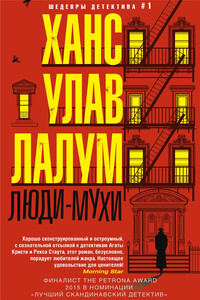
Убит бывший лидер норвежского Сопротивления и бывший член кабинета министров Харальд Олесен. Его тело обнаружено в запертой квартире, следов взлома нет, орудие убийства отсутствует. На звук выстрела к двери Олесена сбежались все соседи, но никого не увидели. Инспектор уголовного розыска Колбьёрн Кристиансен считает, что убийство, скорее всего, совершил кто-то из них. Более того, он полагает, что их показания лживы.
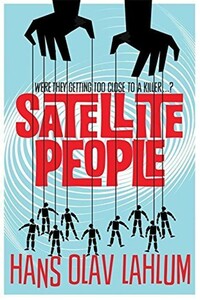
A gripping, evocative, and ingenious mystery which pays homage to Agatha Christie, Satellite People is the second Norwegian mystery in Hans Olav Lahlum's series. Oslo, 1969: When a wealthy man collapses and dies during a dinner party, Norwegian Police Inspector Kolbjorn Kristiansen, known as K2, is left shaken. For the victim, Magdalon Schelderup, a multimillionaire businessman and former resistance fighter, had contacted him only the day before, fearing for his life. It soon becomes clear that every one of Schelderup's 10 dinner guests is a suspect in the case.
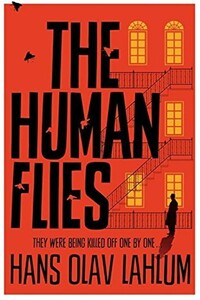
Oslo, 1968: ambitious young detective Inspector Kolbjorn Kristiansen is called to an apartment block, where a man has been found murdered. The victim, Harald Olesen, was a legendary hero of the Resistance during the Nazi occupation, and at first it is difficult to imagine who could have wanted him dead. But as Detective Inspector Kolbjorn Kristiansen (known as K2) begins to investigate, it seems clear that the murderer could only be one of Olesen's fellow tenants in the building. Soon, with the help of Patricia – a brilliant young woman confined to a wheelchair following a terrible accident – K2 will begin to untangle the web of lies surrounding Olesen's neighbors; each of whom, it seems, had their own reasons for wanting Olesen dead.
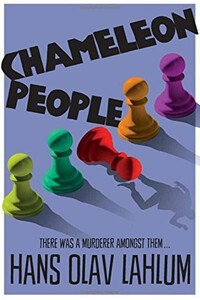
From the international bestselling author, Hans Olav Lahlum, comes Chameleon People, the fourth murder mystery in the K2 and Patricia series.1972. On a cold March morning the weekend peace is broken when a frantic young cyclist rings on Inspector Kolbjorn 'K2' Kristiansen's doorbell, desperate to speak to the detective.Compelled to help, K2 lets the boy inside, only to discover that he is being pursued by K2's colleagues in the Oslo police. A bloody knife is quickly found in the young man's pocket: a knife that matches the stab wounds of a politician murdered just a few streets away.The evidence seems clear-cut, and the arrest couldn't be easier.
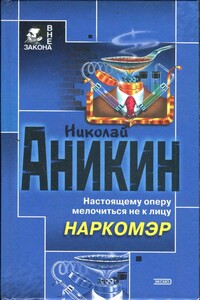
Тупик. Стена. Старый кирпич, обрывки паутины. А присмотреться — вроде следы вокруг. Может, отхожее место здесь, в глухом углу? Так нет, все чисто. Кто же сюда наведывается и зачем? И что охраняет тут охрана? Да вот эту стену и охраняет. Она, как выяснилось, с секретом: время от времени отъезжает в сторону. За ней цех. А в цеху производят под видом лекарства дурь. Полковник Кожемякин все это выведал. Но надо проникнуть внутрь и схватить за руку отравителей, наживающихся на здоровье собственного народа. А это будет потруднее…

«Посмотреть в послезавтра» – остросюжетный роман-триллер Надежды Молчадской, главная изюминка которого – атмосфера таинственности и нарастающая интрига.Девушка по имени Венера впадает в кому при загадочных обстоятельствах. Спецслужбы переправляют ее из закрытого городка Нигдельск в Москву в спецклинику, где известный ученый пытается понять, что явилось причиной ее состояния. Его исследования приводят к неожиданным результатам: он обнаруживает, что их связывает тайна из его прошлого.
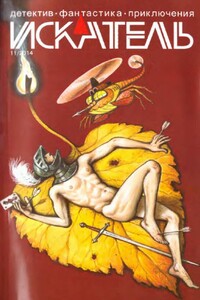
«ИСКАТЕЛЬ» — советский и российский литературный альманах. Издаётся с 1961 года. Публикует фантастические, приключенческие, детективные, военно-патриотические произведения, научно-популярные очерки и статьи. В 1961–1996 годах — литературное приложение к журналу «Вокруг света», с 1996 года — независимое издание.В 1961–1996 годах выходил шесть раз в год, в 1997–2002 годах — ежемесячно; с 2003 года выходит непериодически.Содержание:Анатолий Королев ПОЛИЦЕЙСКИЙ (повесть)Олег Быстров УКРАДИ МОЮ ЖИЗНЬ (окончание) (повесть)Владимир Лебедев ГОСТИ ИЗ НИОТКУДА.
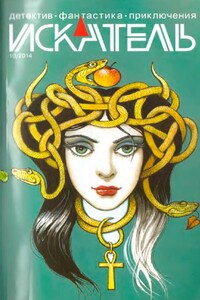
«ИСКАТЕЛЬ» — советский и российский литературный альманах. Издается с 1961 года. Публикует фантастические, приключенческие, детективные, военно-патриотические произведения, научно-популярные очерки и статьи. В 1961–1996 годах — литературное приложение к журналу «Вокруг света», с 1996 года — независимое издание.В 1961–1996 годах выходил шесть раз в год, в 1997–2002 годах — ежемесячно; с 2003 года выходит непериодически.Содержание:Олег Быстров УКРАДИ МОЮ ЖИЗНЬ (повесть);Петр Любестовский КЛЕТКА ДЛЯ НУТРИИ (повесть)
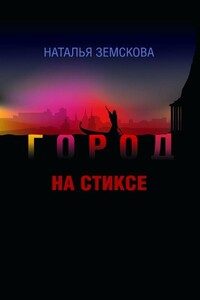
Наталья Земскова — журналист, театральный критик. В 2010 г. в издательстве «Астрель» (Санкт-Петербург) вышел её роман «Детородный возраст», который выдержал несколько переизданий. Остросюжетный роман «Город на Стиксе» — вторая книга писательницы. Молодая героиня, мечтает выйти замуж и уехать из забитого новостройками областного центра. Но вот у неё на глазах оживают тайны и легенды большого губернского города в центре России, судьбы талантливых людей, живущих рядом с нею. Роман «Город на Стиксе» — о выборе художника — провинция или столица? О том, чем рано или поздно приходится расплачиваться современному человеку, не верящему ни в Бога, ни в черта, а только в свой дар — за каждый неверный шаг.
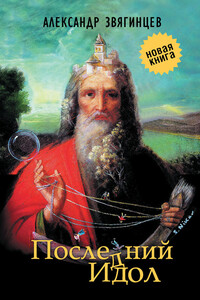
В сборник «Последний идол» вошли произведения Александра Звягинцева разных лет и разных жанров. Они объединены общей темой исторической памяти и личной ответственности человека в схватке со злом, которое порой предстает в самых неожиданных обличиях. Публикуются рассказы из циклов о делах следователей Багринцева и Северина, прокуроров Ольгина и Шип — уже известных читателям по сборнику Звягинцева «Кто-то из вас должен умереть!» (2012). Впервые увидит свет пьеса «Последний идол», а также цикл очерков писателя о событиях вокруг значительных фигур общественной и политической жизни России XIX–XX веков — от Петра Столыпина до Солженицына, от Александра Керенского до Льва Шейнина.